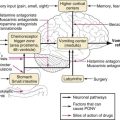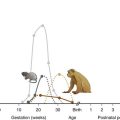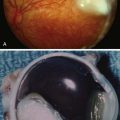
Key Takeaways:Understanding how proteins work is essential for finding new cancer therapies.Techniques like western blotting and mass spectrometry help analyze proteins that play a role in cancer.Advanced methods, such as multiplex assays and live-cell imaging, allow scientists to observe proteins in real-time.Targeted therapies need a deep understanding of changing protein networks to be successful.Proteins are vital to how cells grow, divide, and function. In cancer research, examining how proteins interact and behave is key to developing new treatments. When proteins malfunction or change from their usual behavior, they can trigger the uncontrolled growth of cancer cells. Studying these dynamics enables researchers to create targeted therapies aimed directly at the root causes of cancer. This article explores how protein analysis methods influence cancer research and treatment strategies.
The Importance of Protein Dynamics in Cancer
Proteins play a central role in nearly every cellular function. Acting as the building blocks and messengers that keep cells operating smoothly. They are involved in processes such as cell signaling, metabolism, and structural support. When proteins function normally, they help maintain the balance of cell growth, repair, and death. However, even slight changes in how proteins behave or in their amounts can disrupt this balance, leading to diseases like cancer.Cancer often arises from abnormal protein dynamics. For example, alterations in protein interactions, incorrect folding, or mutations can interfere with the cell’s normal life cycle. These disruptions may cause proteins to send incorrect signals, such as promoting cell growth when it should be controlled or triggering cell division without proper regulation. As a result, cells may start multiplying uncontrollably, forming tumors and spreading throughout the body.Furthermore, imbalanced levels of certain proteins, such as growth factors or enzymes, can create an environment that favors cancer progression. Identifying these changes and understanding their impact on cell behavior is crucial. This knowledge helps researchers uncover how cancer develops at a molecular level and guides them in designing targeted therapies that specifically address the faulty protein dynamics in cancer cells.
Tools and Techniques for Studying Protein Dynamics

Understanding how proteins affect cellular processes, especially in diseases like cancer, requires various analytical tools. Here are some commonly used methods:
Western Blotting
Western blotting is one of the essential tools in protein analysis. It works by separating proteins based on their size through a gel matrix, which allows researchers to identify specific proteins associated with cancer. This method not only detects the presence of proteins but also measures their levels, providing a clearer understanding of their role in disease progression. Researchers frequently use western blotting to identify proteins that are overactive or mutated in cancer cells, offering valuable insights into potential therapeutic targets.
Mass SpectrometryMass spectrometry offers another powerful technique for analyzing proteins. It identifies and measures proteins in complex samples, giving researchers a detailed protein profile. This method can detect even slight changes in protein levels, which might indicate the start or progression of cancer.Researchers often combine mass spectrometry data with other molecular analyses to create a comprehensive map of protein interactions within cancer cells. This detailed view can reveal new targets for treatment and improve our understanding of cancer development.
Impact of Protein Dynamics on Targeted TherapiesTargeted therapies are an advanced method for cancer treatment. They focus on specific molecules, usually proteins, that play a key role in cancer cell growth and survival. Unlike traditional treatments like chemotherapy, which affect both healthy and cancerous cells, targeted therapies aim to block or change the function of certain proteins to stop cancer from spreading. Understanding how proteins behave and change helps scientists find the best targets for treatment, which can lead to better results with fewer side effects.For example, some targeted therapies block proteins called tyrosine kinases. These proteins act like “on” switches for cell growth. In some cancers, tyrosine kinases become too active, causing rapid and uncontrolled cell division. Drugs that block these proteins can slow down or stop the growth of cancer cells. Other therapies might target proteins involved in cell signaling, disrupting the signals that tell cancer cells to multiply.According to the National Cancer Institute, proteins are dynamic and can change their shape and function in response to environmental signals. This flexibility creates challenges for targeted therapies, as cancer cells can sometimes develop resistance to treatment. Resistance often arises when the targeted proteins undergo structural changes, making the therapy less effective or even ineffective over time.To develop effective targeted therapies, scientists need a deep understanding of how proteins work and adapt. They must consider how proteins respond to changes in the cancer environment and how they might adapt to treatment. Knowing these dynamics helps scientists create flexible, long-lasting treatments that can adjust to changes in cancer cells, increasing the chances of success.
New Advances in Protein Dynamics Research
Recent breakthroughs in cancer research have introduced new antibody technologies that are transforming targeted therapies. A significant advancement is the discovery and application of VHH antibodies, also known as nanobodies. These smaller, more stable antibody fragments are highly specific for cancer-associated proteins, making them ideal for precision therapeutics. By integrating VHH antibodies with advanced techniques like multiplex assays and live-cell imaging, researchers can now observe the real-time interactions between antibodies and cancer proteins, allowing for more precise and personalized treatment approaches.Multiplex immunohistochemistry (IHC) has also enhanced the study of protein dynamics. This method uses multiple antibodies to stain tissue samples simultaneously, providing detailed information on the localization, abundance, and interaction of proteins within the tissue. This comprehensive view enables researchers to better understand cancer progression and metastasis, leading to the design of more targeted therapeutic strategies.These advancements equip scientists with powerful tools to study protein dynamics with greater precision. The ability to measure multiple proteins simultaneously and monitor their interactions in real time has expanded possibilities in cancer research. As these methods continue to evolve, they will offer deeper insights into cancer biology, ultimately contributing to the development of more effective and personalized treatments.
ConclusionThe study of protein dynamics is opening new directions in cancer research. By identifying the proteins that drive tumor growth, scientists are developing more targeted and less invasive treatments. This approach aims to improve patient outcomes and reduce the side effects of traditional cancer therapies. Future research will focus on understanding entire protein networks instead of just individual proteins. Since complex signaling pathways play a key role in cancer, mapping these networks could lead to treatments that target multiple proteins, offering a more effective strategy.Advanced tools like western blotting, mass spectrometry, and multiplex assays now allow researchers to study proteins in more detail than ever before. This knowledge is crucial for creating treatments that directly target cancer. Staying up to date with new methods in protein analysis helps scientists and doctors improve cancer diagnosis, treatment, and patient care. Research into protein dynamics continues to show promise for more effective and personalized cancer therapies.
About the Author:

Steven Xia, a passionate histologist and founder of Boster Bio in 1993, overcame humble beginnings in a rural farming community to become the first in his village to earn a PhD. Driven by a vision to support China’s medical and research community in the early ’90s, he started developing proprietary reagents for histology in a small room with minimal resources. Today, Boster Bio reflects his dedication and innovation, providing high-sensitivity ELISA kits and antibodies that empower researchers globally.





